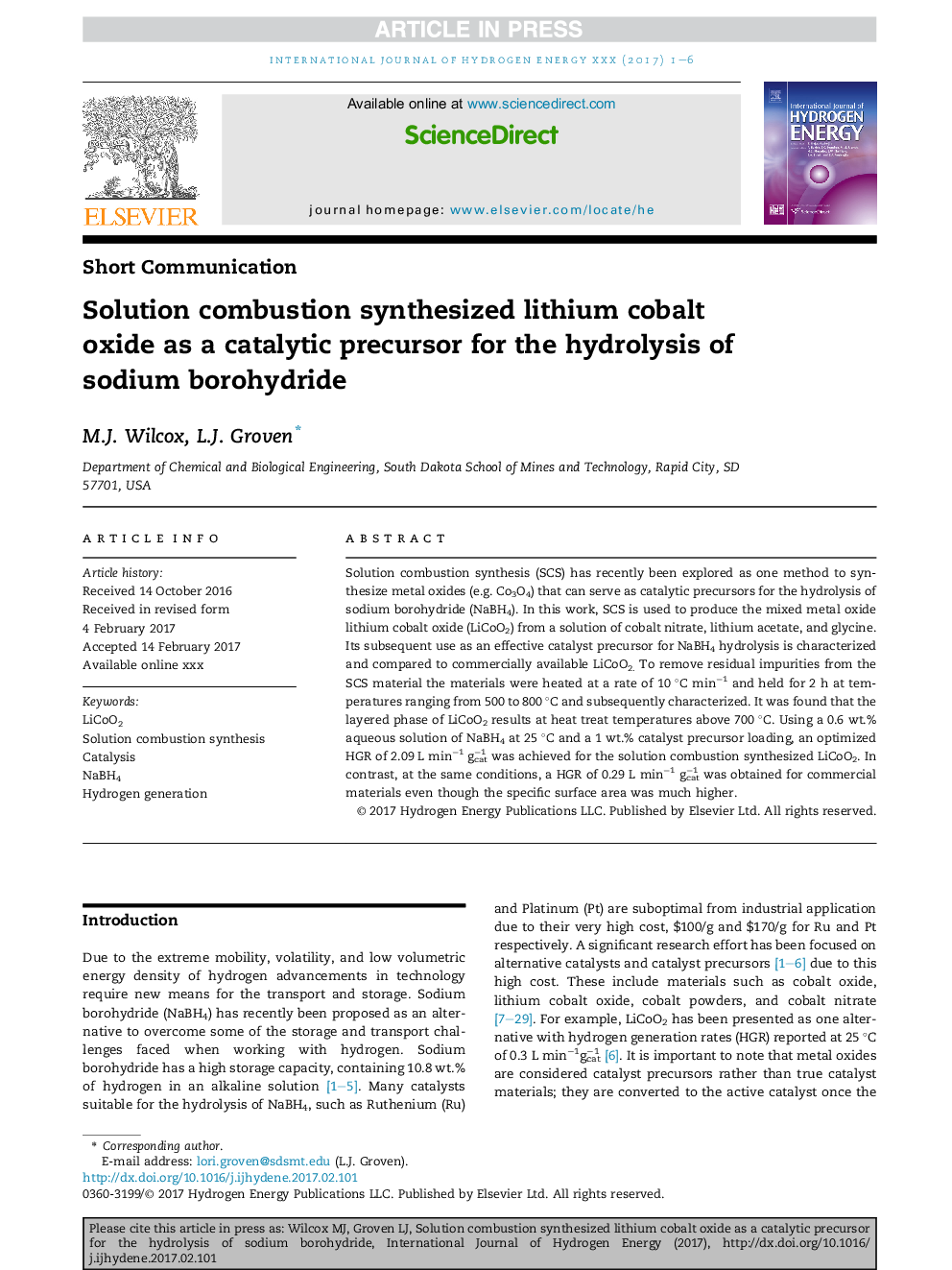| Article ID | Journal | Published Year | Pages | File Type |
|---|---|---|---|---|
| 5146117 | International Journal of Hydrogen Energy | 2017 | 6 Pages |
Abstract
Solution combustion synthesis (SCS) has recently been explored as one method to synthesize metal oxides (e.g. Co3O4) that can serve as catalytic precursors for the hydrolysis of sodium borohydride (NaBH4). In this work, SCS is used to produce the mixed metal oxide lithium cobalt oxide (LiCoO2) from a solution of cobalt nitrate, lithium acetate, and glycine. Its subsequent use as an effective catalyst precursor for NaBH4 hydrolysis is characterized and compared to commercially available LiCoO2. To remove residual impurities from the SCS material the materials were heated at a rate of 10 °C minâ1 and held for 2 h at temperatures ranging from 500 to 800 °C and subsequently characterized. It was found that the layered phase of LiCoO2 results at heat treat temperatures above 700 °C. Using a 0.6 wt.% aqueous solution of NaBH4 at 25 °C and a 1 wt.% catalyst precursor loading, an optimized HGR of 2.09 L minâ1 gcatâ1 was achieved for the solution combustion synthesized LiCoO2. In contrast, at the same conditions, a HGR of 0.29 L minâ1 gcatâ1 was obtained for commercial materials even though the specific surface area was much higher.
Related Topics
Physical Sciences and Engineering
Chemistry
Electrochemistry
Authors
M.J. Wilcox, L.J. Groven,
